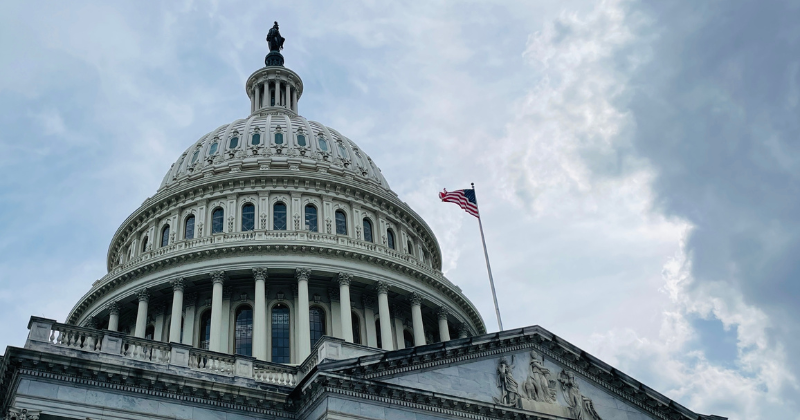The sports betting industry in the United States has been growing by leaps and bounds, and lawmakers are finally taking notice. On Capitol Hill Thursday, a new bill introduced could give the industry. Up until now almost wholly regulated by state law — federal standards. The SAFE Bet Act, short for the “Supporting Affordability and Fairness with Every Bet Act.” Sponsored by Senator Richard Blumenthal (D-CT) and Representative Paul Tonko (D-NY). Aims to establish a national baseline for sports betting in America.
This legislation already divides opinion. Some see it as a necessary tool to protect consumers. While others believe it undermines the regulatory systems that states have worked hard to establish. So, what does the bill’s passage mean for the future of sports betting in America? And how will it affect Pay Per Head bookies and the gaming industry as a whole?
What the SAFE Bet Act Would Do To Sports Betting
Key aspects of The SAFE Bet Act The SAFE Bet Act proposes three main regulations: advertising restrictions. Affordability checks and constraints on the use of AI by gambling companies. If it passes, the bill could have profound implications for sports betting in the U.S.
The proposed law first aims to restrict when and where sports betting commercials air. The new rules ban ads between 8 a.m. and 10 p.m. and prohibit them during live sporting events. The bill also blocks popular promotions such as “bonus bets” and “no sweat bets” — staples in the industry. Lawmakers seek to limit aggressive marketing by betting companies. Arguing that these tactics can lure vulnerable individuals, especially younger people, into gambling.
The second limb of the bill introduces affordability assessments. It restricts deposits to a fixed cap and limits customers to five deposits within a 24-hour period. The law also bans the use of credit cards to fund betting activity. If someone wagers more than $1,000 in a day, the operator must perform affordability checks. Individuals who exceed 30% of their income through gambling won’t be allowed to place additional bets.
Lastly, the SAFE Bet Act tackles the growing use of artificial intelligence in sports betting. It prohibits gambling operators from using AI to track individual gambling behavior or create personalized betting offers. Lawmakers have raised concerns about “microbetting,” which allows gamblers to wager on small. In-game events — like the outcome of a single play. They worry that AI-driven microbetting could encourage problematic gambling habits, and the bill seeks to prevent that outcome.
Opposition From If The Measure is Approved, Sports Betting Stakeholders Plan to Fight It.
Proponents of the SAFE Bet Act say it is needed to protect consumers against problem gambling. The bill has not been well received by all. Many in the industry have argued the federal government shouldn’t be involved. What they believe is an issue that’s the province of the states.
State legislatures and gaming regulators have spent years developing frameworks tailored to their markets. Meanwhile, industry groups argue that federal attention undermines those efforts. “This bill slaps state legislatures in the face,” said Chris Cylke, Senior Vice President of Government Relations for the American Gaming Association. “Especially after they took the time to discuss, consider, and pass sports betting laws over the past two years.” Cylke and others emphasize that states regulate gambling more effectively because they can customize rules to meet the specific needs of their jurisdictions.
Rep. Dina Titus (D-NV), a gaming legislation proponent, also opposed the bill. She called it “outdated and unnecessary” and said that curbing advertising and forcing federal regulation on gametypes would do more harm than good. Titus said that states have done “a very good job” of regulating the industry. That more federal regulation would only muddy the waters.
Despite the pushback, lawmakers behind the SAFE Bet Act argue that the gambling industry needs. National guardrails to prevent addiction and protect consumers. Senator Blumenthal cites successful regulations in places like the U.K. and Australia, where operators enforce affordability checks and advertising limits. He emphasizes that the bill doesn’t aim to outlaw gambling but to ensure people engage in it responsibly and safely.
Sports Betting An Opportunity Or A Threat For PP Betting Agents?
As this bill continues moving through Congress, Pay Per Head bookies and the broader sports betting industry should keep a close watch. While the SAFE Bet Act introduces stricter regulations, it also creates opportunities for operators who can adapt to the new landscape. For Pay Per Head bookies, understanding and complying with the bill allows them to implement new business models that promote responsible gambling and prioritize player safety.
If, however, the bill is passed, it could do much more to hinder the way bookies do business, particularly in the realms of advertising and acquiring customers. The trick will be managing these changes without destroying the industry’s profitability.













